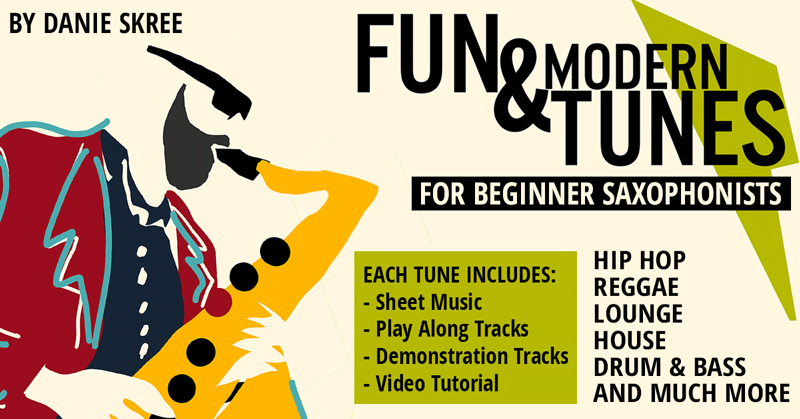Steve Kortyka on Navigating Today’s Music Business
Introduction
When I decided to put out an interview with someone who could serve as an authority for saxophonists navigating today’s music business, I knew that the great Steve Kortyka was the guy I wanted to talk to. For those of you who do not already know Steve, here are some quick highlights to get you up to speed:
- Based out of Astoria, NY, Steve Kortyka is an accomplished multi-instrumentalist, composer and educator.
- Steve is a main member of the Brian Newman Quintet/Quartet, the John Stetch Quartet and co-leader of the New Alchemy Jazz Orchestra.
- Since 2011, Steve has had the opportunity to perform at some of NYC’s most popular venues such as Radio City Music Hall, The Iridium, Rockefeller Center, Smalls, Birdland, 54 Below, and The Rose Theatre at Lincoln Center, to name a few.
- Steve has made notable Appearances on the Jimmy Fallon Show, ABC’s A Very Gaga Thanksgiving, and NYE Live at Rockefeller Center with Carson Daly alongside Brian Newman in support of Lady Gaga and Tony Bennett.
- Steve actively teaches saxophone as well as improvised music through clinics, masterclasses, and solo performances around the U.S.
Steve currently is endorsed by Yamaha, Applied Microphone Technologies, Earthquaker Devices, ReedGeek and Key Leaves.
Interview
ZS: I understand you studied classical saxophone in college and then later switched over to focusing on jazz. What opportunities do you see for the classical as well as jazz saxophonist coming out of college today, and what advice would you give musicians to set themselves up for success after graduating?
SK: I think the opportunity to study classical saxophone was useful in the sense that I learned a lot about control of the instrument. I studied dynamics, learned how to play very loud and soft and articulate a variety of different ways that don’t happen in the jazz idiom. If I could have done one thing differently it would have been to harmonically analyze everything I played classically. I think being aware theoretically of what is going on musically in any situation is invaluable to quickly processing new musical situations. As far as opportunities go, they are self made. Work hard, show up on time, be prepared, have a message, and be kind. That never goes out of style and you will get work as a sideman or leader approaching venues with this mentality.
Getting Gigs
ZS: With fewer clubs in N.Y.C and around the U.S., it can be hard to maintain a consistent flow of work. How have you been able to create opportunities for yourself and at the same time, what is your advice for deciding when it makes sense to turn down an opportunity?
SK: It all comes down to time and money. I have been extremely fortunate in that one of my best friends, Brian Newman is one of the most hard working and talented jazz musicians on the planet. Since we were 18, we have gotten along well and he always gave me the opportunity to work in his band. I have learned from him that you just got to find the gigs, they aren’t going to fall on your lap. It’s hard work but if you go out and build and build relationships with venues, venue owners and or management, you put yourself in a good place to be a candidate for their establishment. There is a rule of 3 for me when it comes to turning down gigs. The 3 factors are: good money, good music, good hang. If 2 of those three are missing, I usually don’t take the gig. Sometimes you might not have that luxury, but if all three of those are missing – use the time as an investment in your future and well being and go out and find a better one instead of taking that one!
ZS: You mentioned that Brian Newman said “to just go out and find the gigs”. How do you go about finding or creating these opportunities? And what is your process for building a relationship with these venue’s?
SK: Go to places you want to play and learn about the venue. As a jazz musician coming to NYC, Brian had worked as a bartender, server, and bar-back so he knows the in’s and out’s of the hospitality business probably better than anybody – which entertainers and musicians are a part of if they’re doing their job right. If you hang out and get to know the people that work at the venue, it will go a long way if it’s a place that you would like to be a part of. Meet the managers and the owner, tip the servers and learn their names. It takes time but it makes for a lasting relationship and something deeper than just a one off gig at a venue.
Social Media
ZS: I have seen more saxophonists invest quite a bit of time into social media (Instagram, Twitter, YouTube, Facebook, etc.) to share their music as well as reach out to new and existing fans. What are your thoughts on how you currently manage your social media presence, and do you have any recommendations for players who are looking to get started?
SK: Social media is amazing and awful all at the same time. It can be a real time-suck, but it can also be great for putting the best version of yourself out into the public. Almost all of my posts are career oriented because being a musician is a huge part of my life. It sounds cliché but I always try to post things that I think will inspire other people to do something that will inspire others. In that sense, I feel like hopefully my output on the medium is exponential. My advice to others would be to have a focus and make some written goals for what you want to do with it. Mine are improve as a saxophone player, become known as an authority in the music community, and promote inquisition on the planet. There are a lot of distractions so I try to avoid it outside of using it as a learning tool.
ZS: You mentioned social media can be amazing but at the same time awful. Which platform have you had the most success with? And are there a few musicians that you feel manage their social media presence very well and would be a great point of reference?
SK: I think right now Instagram is the most useful with regards to outreach, but YouTube will actually pay you if you get a certain number of followers, which can be pretty amazing when you think about it. There’s a lot of musicians who manage it well, but some that come to mind are Rick Beatto, Adam Neely, Chad Lefkowitz-Brown and Jay Metcalfe to name a few. Anybody who managed to acquire a large number of followers organically is probably doing something right.
Online Lessons and Creating Educational Materials
ZS: I personally have taken a few music lessons with you over Skype (highly recommend) and I know you teach via in person lessons, masterclasses, clinics, etc. What are your thoughts on creating your own educational material and do you see this as another source of income for the working musician today?
SK: If the material is good, then it can definitely be a source of significant income although I haven’t quite gotten to that point yet. I have had some experiences outside of social media that have not been so good for making money so I feel like content generation via social media is definitely the wave of the future.
ZS: You mentioned you have had some experiences outside of social media that did work out well for making money, what were those experiences? And why do you think it did not work out well?
SK: Just releasing material that could be monetized but giving away too much of it early on. Being organized and releasing content on a specific timeline is very important if you want to make money with resources you create.
Steve’s New E-Books!!!
Endorsements
ZS: What has been your experience thus far finding or being approached by companies that want you to endorse their gear? and how would you recommend best handling this relationship so both parties benefit in the long run?
SK: I have never been approached by a company directly to endorse their gear. With every company I work with, I approach it with the mindset that I want to help them, not the other way around. I can’t make a saxophone, I can’t make a microphone, and I can’t make reeds so I need to let them know that I appreciate them for all that they do and provide. The best way for me to do this is to sing their praises and let people know how good their gear is whenever I can. In general, this approach is almost always mutually beneficial and makes company reps realize that you are in it for the right reasons. Nothing is more misinformed than the ideology that if you use a product and don’t even mention it or have a relationship with a representative of theirs that you’re doing them a favor. Reach out to them and think about how you can help others appreciate their value.
ZS: Why do you think many musicians feel endorsements are a one way street and only one side will benefit?
SK: I’m not entirely sure- I know I don’t feel that way! Taking the time to establish relationships almost always results in a situation that benefits both parties. If it doesn’t then move onto another company. There’s a lot of them!
Current Projects
ZS: What projects are you focused on today?
SK: I am doing a lot of writing for the bands that I play with (Brian Newman, New Alchemy Jazz Orchestra, my Quartet) and also arranging for myself to be a guest clinician wherever I travel. It’s a lot of work but it usually pays off and I love it!
Steve’s Setup
Saxophone
- Soprano: YSS82Zii
- Alto: YAS82Z UL
- Tenor: YTS82ZASP Bronze, YTS82ZiiS
Neck
- Alto: Yamaha V1
- Tenor: Yamaha C1L (main neck), Yamaha V1 silver plated,
Mouthpiece
- Soprano: SYOS Dayna Stephens Model
- Alto: SYOS Custom
- Tenor: SYOS Custom
- Bari: SYOS Dayna Stephens Model
Ligature
- M/O Ligature on all mouthpieces
Reeds
- Marca Reeds: American Vintage & Jazz Unfiled 2’s: (Soprano, Alto, Tenor, Bari)






